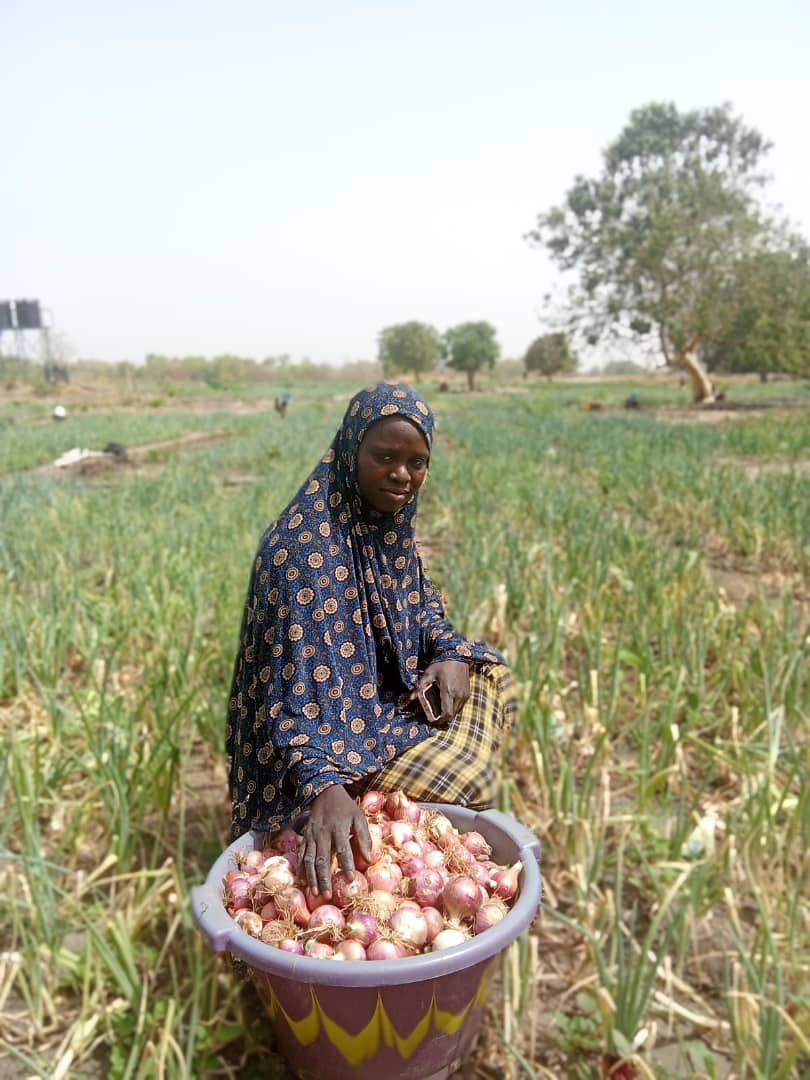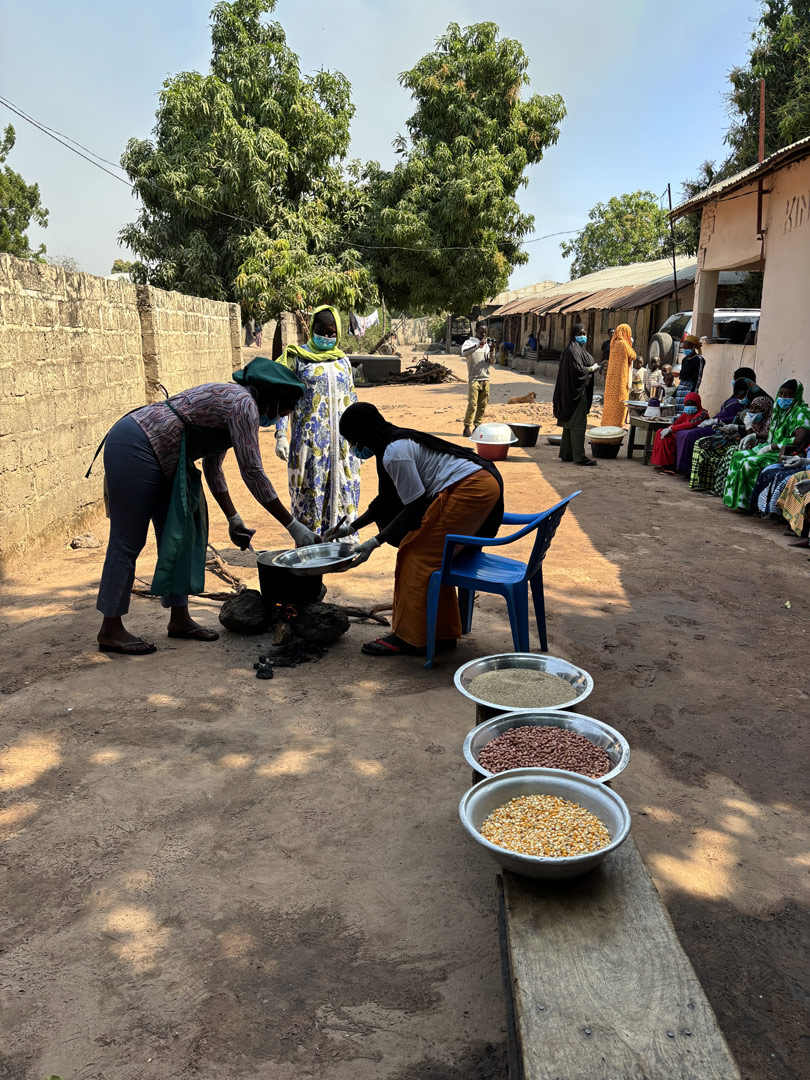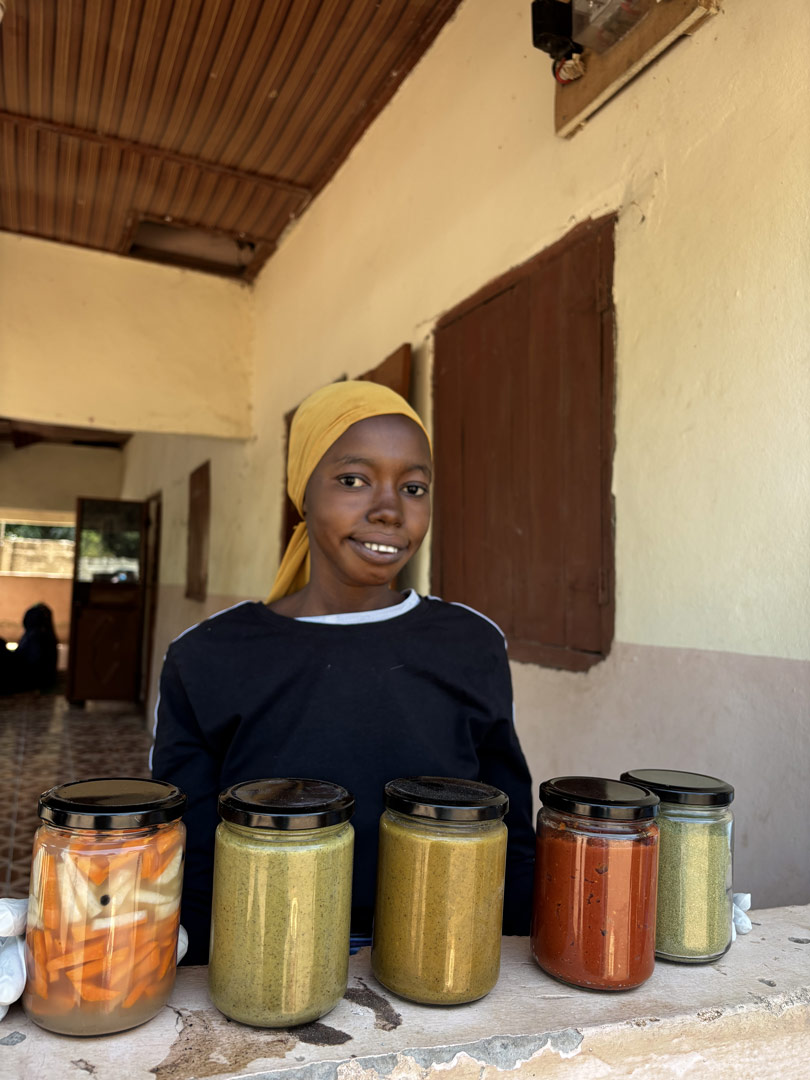It’s time to share some data from 2024!
Data collection took place in Jiffarong when the year changed, for the project team to know how well the objectives had been reached last year. Here are some interesting details from the questionnaires.
Based on the data collected from the Tesito farmer women in Jiffarong, the average amount of food secure months rose from 6 (2023) to 10 (2024) in a year. This is a great result, as the rainy season storms caused a lot of damage in the vegetable garden last summer, and according to the data collected, a quarter of the rainy season harvest was lost. During the storm Jiffarong garden fence collapsed and the water tank tower broke, leading to two tanks falling on the ground.
The most common vegetables farmed during the dry season were onion, sorrel, tomato, sweet pepper and okra, and during the rainy season wonjo, okra, hot pepper, tomato and bitter tomato.



The farmers were also asked, which products they would be interested in making, once the food processing station opens. 55% answered tomato paste, 47% said pepper sauce, 37% said dried fruits, seeds and vegetables, and 21% answered jam.
During the questionnaire, 58% of the women reported taking part in both the dry and the rainy season farming, while 42% only did dry season farming. It has traditionally not been common in Jiffarong to farm vegetables during the rainy season, and many of the women engage in rice farming instead. However, Tesito aims to encourage the farmers to try rainy season farming, while some borrow their garden beds to other farmers to either do farming for them, or for themselves.
When asked why they decided to do rice farming during the rainy season, 70% of the women said they felt family pressure, while 30% said they faced peer pressure. Rice production is physically very heavy compared to vegetable farming, and the harvest is relatively low as many are lacking proper equipment. Government has traditionally supported the activity, which is why it remains a typical livelihood for the summer months. Tesito project supports women with rainy season vegetable seeds, to be able to encourage as many as possible to farm year-round.
Also the FMNR beneficiaries reported having 60% increase in food secure months and 54% increase in monthly profit. This is great news. Many of them, however, noted that they would need more farming tools, fertilizers and seeds to make their farming more efficient.
There were no new revolving fund beneficiaries last year, since the project team decided to continue supporting the already existing entrepreneurs instead. Six of them still continued their businesses in 2024, and two of them constructed a new shop. Based on the data collected, they reported having an average of 5,3 food secure months, which is a small increase compared to 2023, but still rather low. All of them wished to get more loans and additional training to scale up their business in 2025, which the project team is working on this year.
All the data collected will be considered to make necessary changes this year, and to keep food security and profit from sustainable livelihoods rising.